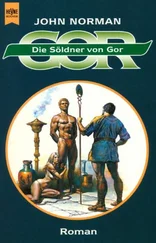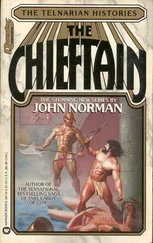The giant looked about himself. The fellow who had been the leader of, or foremost in, the tiny mob which had accompanied them in the streets, had now disappeared, having beaten his rapid retreat away. His fellows, some ten or twelve others, hung back. He did not think they would further follow. One of their number, as we have noted, lay at the foot of a stone wall, unconscious. He lay beneath a crooked smear of blood, which he had painted with his own body, with the back of his head, on the surface of the wall.
The giant noticed, nearby, the woman, she in embroidered leel , whom he had seen earlier. She had apparently turned about and, angrily, had followed the group, for what reason he knew not.
Again their eyes met.
“Lout!” she hissed at him.
Ah, he thought, she is angry that I regarded her, at the barrier, at the guard station.
She looked about herself, contemptuously, at the fellows about her. “Cowards! Filchen !” she scorned them.
It has been our usual practice in this narrative to use familiar expressions for resembling life forms, or, perhaps better, life forms occupying similar ecological niches or being employed for similar purposes as life forms with which the reader may be presumed to be familiar; for example, we speak, unhesitantly, of cattle, of sheep, and such beasts, but it would be useful for the reader to understand that the animals so referred to would, in most cases, not count as the cattle, the sheep, and such with which he is more likely to be familiar. The primary justification for this practice is its utility in avoiding a distractive multiplication of nomenclatures and a prolix delineation, presumably not in the best interests of the narrative, and certainly not required for its general intelligibility, of specific and generic differences among dozen of types of creatures, many uniquely indigenous to their own world, though, to be sure, also, many of which may now be found, thanks to interstellar transportation, authorized or not, intended or unintended, understood or inadvertent, on many worlds. Occasionally we do use particular names for these creatures, particularly when there seems some point in doing so. The filch , for example, is a furtive, small, gnawing, rather rodentlike animal. We have not spoken of it as a rat, or mouse, however, because in alternate generations it is oviparous. When we do speak of rats, or mice, for example, as we feel free to do, those terms are used of animals which, on the whole, would be more biologically analogous, or at least somewhat more so, to the “rats” and “mice,” and such with which the reader is presumed to be familiar. The uniformity of viable habitats, given planet-star relations, distances and such of diverse types, and the principles of convergent evolution would seem to be, in such cases, relevant considerations. In such matters, we beg the reader’s indulgence.
“ Filchen ,” she cried to the citizens about her. “ Filchen !”
She then looked boldly at the giant.
“Barbarian!” she said.
That was the first time that that expression had been used of him, in the streets.
To be sure it was doubtless because of his appearance, the manner in which he was clad, and perhaps, too, the manner in which he carried himself, so unapologetically, so unregenerately proudly, that he had been so pursued in the streets, and so belittled.
“Let us be on our way,” said the companion of the giant.
“Wait,” said the giant.
Why had the woman followed the small company, he wondered.
He took a step toward the woman, not to threaten her, but merely to approach her.
She shrank back, but then stood her ground.
The tiny group about her, the fellows on which she had heaped her scorn, fled back.
It was almost as a swarm of flies might have withdrawn from the movement of a hand.
He did lift his hand, but to brush away flies.
He took another step toward her, curious.
“I am not afraid of you!” she said.
He stood still, looking at her.
Then a small, supercilious smile played about her lips, one of amusement, of contempt.
He realized that she counted upon her sex to protect her, her station, which seemed high, the guards perhaps, his companion perhaps.
Boldly she stood her ground.
“Barbarian,” she hissed.
He said nothing.
She had followed the group. He wondered, why. What had motivated her? Was it hatred, was it a desire to prove to herself that she was not afraid of him, was it to revenge herself for having been made the subject, willing or not, of a man’s glance, was it curiosity, was it fascination, or was it all these, perhaps, and something deeper, far deeper, which she herself could only dimly sense, but which moved her with a powerful force, one she could not resist, and which, in her heart, she did not desire to resist?
“You are a handsome fellow,” she said, demeaningly. “Doubtless you turn the heads of the simple village maids.”
He did not tell her that it was not unknown for there to be women in the villages not too unlike herself, women who had once been citizens of the empire, who lived in terror of the free women in the villages, and their switches and sticks.
“Lace your tunic,” she said.
His broad chest was muchly bared, as he had undone much of the lacing.
He then approached her, to where she stood within his reach. She trembled, visibly, but did not withdraw.
Then she drew herself up, arrogantly. “I denounce you as an ape, and a barbarian,” she said.
“You do not dare to strike me,” she said.
His hand lashed out, cuffing her, sending her turning to the wall.
At the wall, half turned, she regarded him, disbelievingly, a trace of blood at her lip.
She looked wildly at the guards.
“No!” said the companion of the giant to the guards, sharply. “He is a guest of the empire!”
The giant then went to the women and pulled her out from the wall.
He stood her, trembling, before him.
“It is hot,” he said.
He then, with two hands, as she cried out, and gasped, and as utterances of surprise, or protest, emanated from the guards, who were restrained by the companion of the giant, tore open, and down, to her waist, the garments of the woman.
It is thus, on some worlds, in the most genteel of markets, that slaves are exhibited, stripped merely to the hips. Usually, of course, the woman is exhibited stark naked, save perhaps for collars or bonds, that the buyers may see, fully, and with perfection, what it is that they are buying.
He then, by her wrists, holding one in each hand, forced her down, down on her knees, before him.
He looked down upon her.
Women might have some worth, he thought, as slaves.
Then he released her.
She pulled her garments up, closely about her, holding them in place.
She remained before him, fearing to rise.
“Perhaps we shall someday meet again,” he said to her, “amidst the smell of smoke, I with a rope in my hand.”
“You are not a gentleman,” she said.
“Nor would you be a lady, naked and on a rope,” he said.
“You are a barbarian!” she whispered.
“Yes,” he said. “I am a barbarian.”
He then turned about and left her, where she knelt, clutching her clothing about her, on the street.
In a moment the giant and his companion had come to the edge of the vast plaza, within which, in its center, more than five hundred yards away, like a jewel, ensconced in more than a dozen walls, lay the palace.
At the edge of the plaza, after the private exchange of signs and countersigns, and a brief ceremony, involving salutes and drill, escorts were exchanged, and the officer of the guard, with his men, returned the way they had come, and the giant and his companion, now in the company of a contingent of the palace guard, prepared to approach the palace.
Читать дальше












